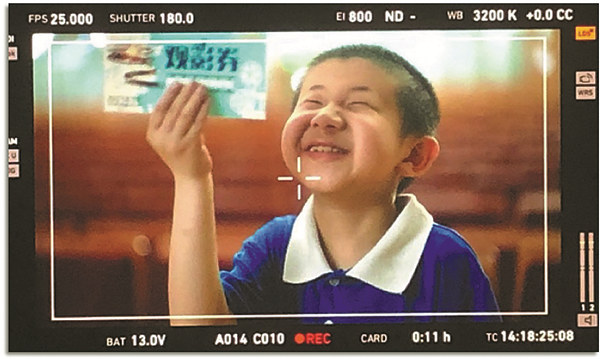Experiencing films beyond the screen


Fu recalls that the idea came about during a group discussion on how to improve life for people with vision loss. A teacher asked — although walkways are equipped with amenities to assist people with vision loss — what about their access to cultural products?
China had nearly 28.6 million people with vision loss by the end of last year, according to data from the National Bureau of Statistics. At least 8 million are completely sightless, according to the China Association of Persons with Visual Disabilities.
Fu and his colleagues decided to use their expertise in film to "pave the way to let people with vision loss enjoy the benefits of culture".
The opening line of each barrier-free film version they've produced says: "Welcome to Ever Shining Cinema, which conveys color through sound and depicts art through listening."
The first issue they must overcome is film availability. Beijing Gehua CATV Network and Oriental Jiaying Media provided five movies to start the program.
A discussion was held in a meeting room in the Television School of the Communication University of China on how to make films accessible to people with vision loss. Some teachers suggested narrations of each roughly two-hour film reinterpreting them into half-hour stories through audio recording and editing. But this approach was abandoned because they wanted to provide a fully immersive film experience to people with vision loss.
"Ever Shining Cinema's barrier-free movies include play-by-play narrations of what's happening on-screen in between dialogues and sound effects. These narrations describe the scenes and the meanings and emotions behind them," Fu says.
The processes of scriptwriting and revising, and audio recording, editing and mixing require tens of thousands of clicks on pause buttons to get familiar with every detail from shot to shot, he says. It takes about a month to finish a film.
In April 2019, the project participated in the Beijing International Film Festival as a permanent section. Although China's movie industry has experienced rapid growth over the past decade and had 86,310 screens by the end of last year, according to the China Film Administration, enjoying films at cinemas is not a common treat for people with vision loss.




































